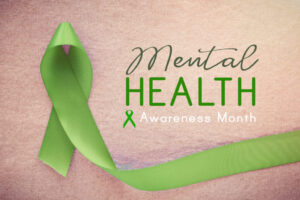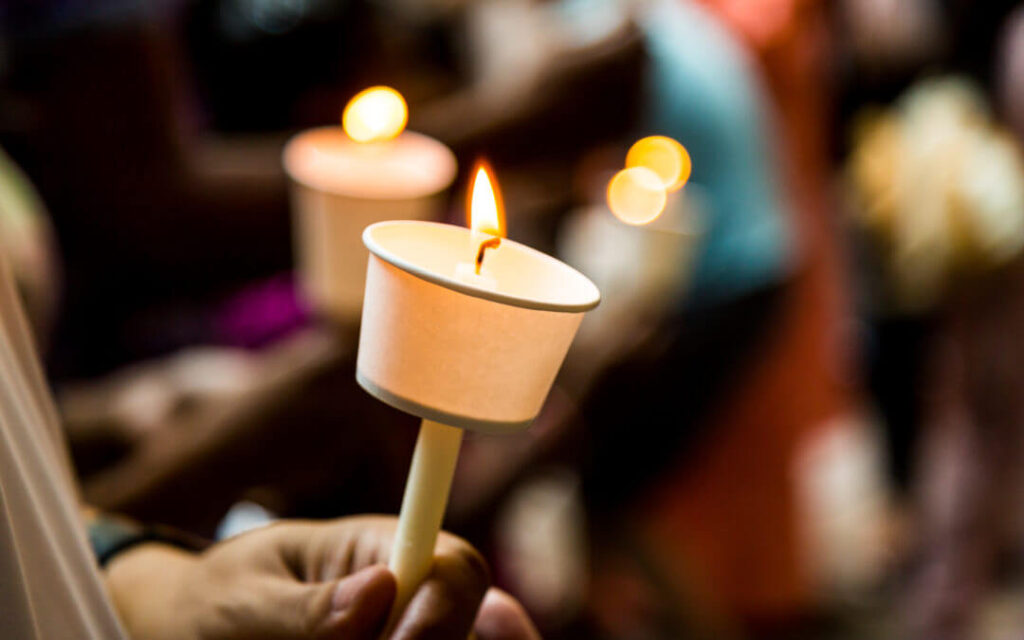The recent mass shootings in America have spawned a new discussion around mental health. Unfortunately, it is a dialogue that is tearing down much of the progress we’ve recently made to raise awareness and destigmatize the topic.
In response to the tragedies in Texas and Ohio, our president has referred to the shooters as “mentally ill monsters,” suggesting that the mentally ill should be “involuntarily confined” to prevent such things from happening again. His myopic statement that “mental illness pulls the trigger” stands to perpetuate the idea that all people who have a mental illness are dangerous, when in fact, most are non-violent.
Much research has been done on the topic, and the findings show that only three to five percent of all violent acts are perpetrated by someone with a mental illness.
However, mental health experts are speaking out in opposition to this statement. They offer instead that people who suffer from mental illness are ten times more likely to be victims of violence rather than the other way around.
The Truth About Violent Behavior and Mental Health
Statistically, only one percent of all gun violence in the United States is perpetrated by individuals who have a mental illness. In reality, the most significant predictor of violent behavior is a history of violent behavior.
Experts believe that the rhetoric that the president is currently dishing out on the topic may further stigmatize people living with mental illness, and possibly discourage them from seeking help.
In 2006, a national survey revealed that 60 percent of Americans thought that someone with schizophrenia would act violently towards another person. A further 32 percent thought that people with major depressive disorder would be violent.
Scientific research reveals, however, that only a tiny percentage of mental health sufferers are violent. Perhaps more significantly, the majority of mental health patients who do commit violent acts also have co-occurring substance abuse issues or other factors that contribute to the behavior.

The History of Mental Health Awareness: Progress and Regression
Mental health has long been stigmatized. It has only been in the last fifty years or so that we have made some progress in this regard. As psychiatry and understanding of the nature of mental illness have progressed, the way we approach it has changed considerably, but the echoes of past persecution still linger.
The movement to deinstitutionalize began in the 1950s, changing an “asylum-based” system to care that is more community-minded, providing patients with a better quality of life. By the 1960s, health standards were passed to ensure that only people who posed a serious risk to themselves or others could be committed.
In the past decade, we have made significant strides toward gaining a better understanding of mental illness, in all its forms. The discussion sought to reveal the truth about mental illness and to refute the stereotypes that ultimately lead to the neglect of people who suffer from psychiatric illness.
Making the connection
We have gained a lot of ground in the effort to educate the public, and a lot of positive things have come from it, not the least of which is knocking down the idea that people with mental illness can’t hold a job, maintain an apartment, be a contributing part of the community, or build a long-term relationship of any kind. Without these basic needs being met, mental health will suffer – even for those of us who are sound of mind and body.
One in four people will require professional help for a mental health problem at some point in their life. However, this doesn’t mean they will seek out the support they need, largely because they fear what might happen or what people will think.
In recent years, many programs have evolved to address the issue. Celebrities, actors, and musicians have spoken out about their own struggles with mental health, encouraging people to seek help when they need it and calling for a more open, transparent, and nonjudgmental discussion.
How far have we come?
Based on the building awareness, the progress we have made towards reducing the stigma attached to mental health is significant. With a growing number of children and young adults affected by anxiety and depression, it is more important than ever to ensure they know they can have a safe discussion around what’s happening to them.
Statistically, anxiety disorders are affecting 25 percent of teens between the ages of 13 and 18, impacting their ability to enjoy life and thrive in their social groups. Medical science continues to advance in this area, but sadly, 75 percent of that group will never seek out or receive adequate care.
Changing the conversation
There is plenty of research to prove that talking about mental health improves health outcomes, boosts self-esteem, lends hope, and tells us we are not alone.
All over the world, mental health awareness has become a mainstream topic, with the entire month of May dedicated to changing the conversation. Green ribbons, and the hashtag #breakthestigma have entered our collective consciousness, clearing a pathway to wellness that has historically been a very rocky one.

School programs, mass media, film, television, and popular music have joined forces to destigmatize and create change where mental health is concerned – and it’s been working incredibly well. Tough issues, like body image, substance abuse, chronic pain, and depression were brought forward, and solutions, support, and understanding were applied. Finally, after decades of living in the dark, we were starting to make some headway.
Until August 2019, when one of the world’s most powerful men drew a line between a horrific and tragic crime and mental health.
Is it a public health crisis?
The National Council for Behavioral Health recently published a report that summed up their research into mass shootings.
The study highlights several characteristics of mass shooters:
- They are men
- They have anger or issues that relate to work, money, or close relationships
- They are ambivalent about life
- They feel that they are victims
- They sympathize with others they see as being like them
- They have a history of violence, domestic or otherwise
According to psychiatrists, these characteristics are representative of individuals in mental distress – which is very different from mental illness. This means that they are motivated by a life event or stressor that causes them to act out.

Because most of us can’t imagine a person in their “right mind” committing such acts, some assume that the person must be mentally ill.
If we are willing to accept that the reason for such violent acts is mental illness, it may well follow that we will see certain restrictions put in place that will restrict the movements and freedoms of people who have been diagnosed with a mental health disorder. It will then follow that anybody who suffers from mental health issues will likely not seek treatment because of it.
The domino effect from this would be deadly, but not from violence perpetrated against others. It will be self-harm, suicide, and unnecessary mental anguish – all of which could have been prevented.
Words have so much weight: They can heal, and they can also be weaponized. Which will you choose to wield in this next, all-important chapter in mental health awareness?
If you or a loved one is struggling with mental illness, we are here to help. Our alcohol rehab center in Long Beach provides trauma-focused treatment and resources for alcoholism issues. For immediate assistance, please call our Admissions Specialists at +1(562) 247-3520 or +1(866) 766-8776.



